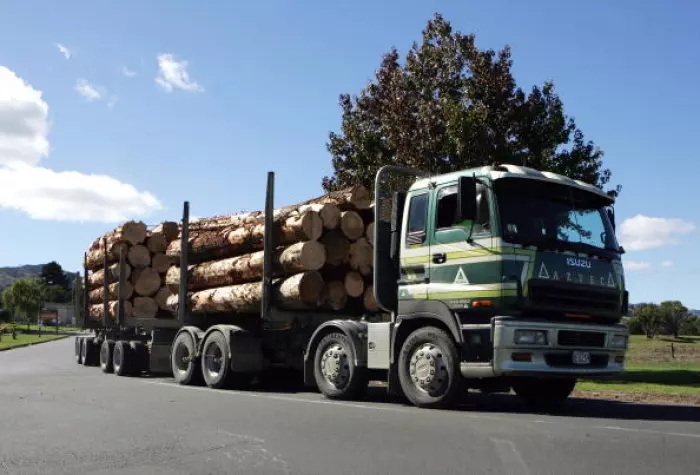Carter Holt Harvey chief executive Prafull Kesha said CHH was "continuing to meet its contractual obligations" after the Commerce Commission said it would make enquiries into the company's recent actions.
This follows CHH's decision last Wednesday to halt structural timber supply to some of its customers, including ITM and DIY outlet Mitre10.
Kesha said the shortages were a direct result of booming conditions in the building industry.
He added that CHH has been investing "significant capital" in capacity expansion and increased the supply of structural timber by 40% compared to 2019.
A further capacity expansion was currently underway and expected next year also, he said. The curtailment of supply related to only about 10% of the company's structural timber volume.
Meanwhile, ITM chief executive Darrin Hughes said the suspension of structural timber supply to the building materials company by CHH raises questions about fairness in the market.
Hughes said the cooperative, which has just under 100 stores, would welcome an investigation into CHH, which as a significant supplier of framing timber to the New Zealand market with an estimated 45% market share, meant that "most major merchants are required to transact with them".
"Certainly the fact that CHH has not restricted supply to their own subsidiary – Carters and Fletcher's subsidiary Placemakers – raises questions about fairness."
Those companies were advised by CHH on Wednesday that supply was being halted due to critical supply shortages, believed to be related to last year's closure of its Whangarei sawmill and capacity issues at its Kawerau sawmill.
Hughes said while the company sources from most independent timber mills throughout the country, including Red Stag in Rotorua, many mills were now facing increasing inquiry as a result of CHH's supply shortage, with last's week's notification creating an "obvious spike of demand in an industry that was already struggling to keep up".
The NZ Forest and Wood Sector Forum (NZFWS) said in a statement the country's domestic timber supply is strong and "our wood supply chain is not at risk".
NZFWS Forum spokesperson, James Treadwell, said the cutting of supplies is most likely "a commercial issue between a supplier and its customers, rather than a supply issue within the NZ forest and wood sector".
Ministers blind-sided
Ministers appeared to have been blind-sided by the Carter Holt Harvey decision at the end of last week, with ministerial offices telling BusinessDesk they were unaware of the issue initially.
Speaking after today's Cabinet meeting, prime minister Jacinda Ardern declined to say whether the issue had been discussed but noted that “I’ve seen some in the industry saying this is an industry issue we need to work through rather than government”.
“However, our view is that we have a responsibility to keep a close eye on what’s happening here,” she said. “It could affect issues around our pipeline of supply and our construction plans, which is of interest to us of course.”
The government is encouraging a higher rate of new house construction through fast-tracked urban intensification processes and investment in new dwellings by its own housing agency, Kāinga Ora.
“So ministers are engaged in looking at what it is that has caused this issue and of course what we can do as a government through our Industry Transformation Plans to ensure that we have more processing in New Zealand.”
Plan coming
The ITP, which has been underway since early 2019, appears to have made very little progress in the more than a year since the Wood Processors and Manufacturers Association briefed three ministers on its concerns about the “unlevel playing field” affecting NZ domestic sawn timber supplies.
In that meeting, December 2019, then trade and export growth minister David Parker said “remedial measures to tackle the degree of distortion measured in the investigation now needed to be set out in the ITP,” according to WPMA minutes of the meeting, released to BusinessDesk.
“The ITP is the mechanism to resolve the nature and degree of injury set out in the investigation.”
WPMA chief executive Jon Tanner said today that the last substantive engagement that his organisation had in the ITP was last December at a consultation meeting involving dozens of industry participants.
Most of the official commentary on the ITP makes no mention of the sawn lumber trade and discusses targeting the use of wood fibre for use in biofuels, new plastics, chemicals and industrial resins, and the contribution that wood fibre can make to a ‘bio-economy’ strategy for NZ.
Additional reporting by Pattrick Smellie.















